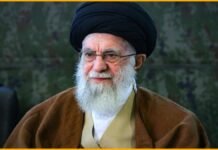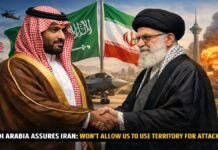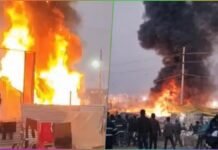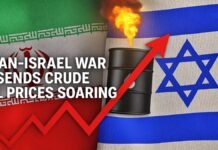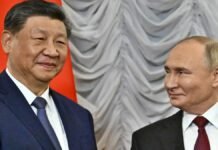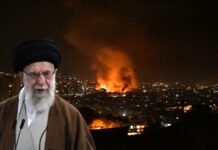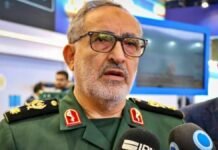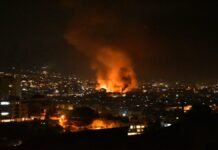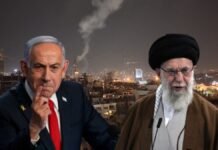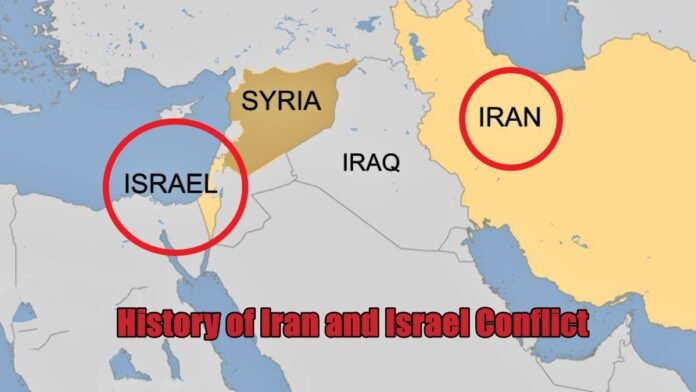
The Iran-Israel conflict represents one of the most complex and dangerous flashpoints in international relations, with religious, ideological, and geopolitical dimensions that make resolution extremely challenging. Understanding its history is essential for comprehending current regional dynamics and the potential paths toward either further escalation or eventual de-escalation.
Early Relations:
The Shah Era (Pre-1979)
Before the Iranian Revolution of 1979, Iran and Israel maintained relatively close diplomatic, economic, and military ties. Under Shah Mohammad Reza Pahlavi’s rule, Iran was one of the first Muslim-majority countries to recognize Israel after its founding in 1948. This relationship was part of Israel’s “Alliance of the Periphery” doctrine, which sought to establish ties with non-Arab states in the region to counter Arab hostility.
During this period, Israel supplied Iran with military equipment and training, while Iran provided Israel with oil. The two nations also collaborated on intelligence matters and maintained economic partnerships. However, it’s important to note that despite these cooperative relations, the Shah never established full diplomatic relations with Israel and maintained that he would only do so after Israel ended its occupation of Palestinian territories.
The Islamic Revolution and Fundamental Shift (1979)
The 1979 Islamic Revolution in Iran marked a dramatic turning point in Iran-Israel relations. When Ayatollah Ruhollah Khomeini came to power, Iran adopted a sharp anti-Israel stance, cutting off all official relations. The Israeli Embassy in Tehran was closed and handed over to the Palestine Liberation Organization (PLO).
Khomeini declared Israel an “enemy of Islam” and the “Little Satan” (with the United States being the “Great Satan”). This ideological shift was rooted in Khomeini’s vision of Islamic governance and opposition to what he viewed as Western imperialism in the region. Despite this public hostility, some clandestine ties reportedly continued during the Iran-Iraq War (1980-1988) due to strategic necessities.
The Evolution of Conflict (1980s-2000s)
Proxy Warfare Begins (1980s-1990s)
Following the revolution, Iran began supporting various anti-Israel groups, most notably Hezbollah in Lebanon. After Israel’s 1982 invasion of Lebanon, Iran helped consolidate various Shia militias into Hezbollah, providing them with ideological indoctrination, military training, and equipment. This marked the beginning of Iran’s strategy of confronting Israel through proxy forces rather than direct military engagement.
In the early 1990s, tensions escalated further with Iran being implicated in attacks against Israeli and Jewish targets abroad. The most notorious incidents were the 1992 bombing of the Israeli embassy in Buenos Aires and the 1994 AMIA Jewish community center bombing, which killed 85 people and injured hundreds more. Argentina formally accused the Iranian government of directing these attacks and Hezbollah of carrying them out.
The Lebanon War of 2006
The 2006 Lebanon War represented a significant escalation in the Iran-Israel proxy conflict. The 34-day war began on July 12, 2006, when Hezbollah ambushed Israeli soldiers on the border, killing three and capturing two. Israel responded with airstrikes and artillery fire on targets in Lebanon, attacking both Hezbollah military targets and Lebanese civilian infrastructure.
During this conflict, Iran provided substantial support to Hezbollah, including advanced weapons systems and tactical guidance. The war ended with a United Nations-brokered ceasefire on August 14, 2006, though both sides claimed victory. This conflict demonstrated Iran’s growing capability to challenge Israel through its proxies and established a pattern of confrontation that would continue in the years ahead.
Nuclear Tensions and Covert Operations (2000s-2020s)
Iran’s Nuclear Program and Israeli Concerns
Iran’s nuclear program has been a central point of contention between the two countries. Israel views Iran’s nuclear ambitions as an existential threat, particularly in light of statements from Iranian leaders questioning Israel’s right to exist. Iran has consistently maintained that its nuclear program is for peaceful purposes, while Israel has advocated for international pressure to prevent Iran from developing nuclear weapons.
The Shadow War: Assassinations and Cyber Attacks
The conflict between Iran and Israel has often played out in the shadows through covert operations. One of the most notable incidents was the Stuxnet cyberattack in 2010, widely attributed to Israel and the United States, which targeted Iran’s nuclear facilities and damaged centrifuges at the Natanz uranium enrichment plant.
Israel has also been linked to the assassinations of several Iranian nuclear scientists between 2010 and 2012. In 2020, Mohsen Fakhrizadeh, considered the father of Iran’s nuclear program, was killed in an attack widely attributed to Israel. These operations were part of Israel’s strategy to delay Iran’s nuclear progress without resorting to open warfare.
Recent Escalations (2020s-2025)
The Gaza War and Regional Tensions (2023-2024)
The October 7, 2023, Hamas attack on Israel, which killed approximately 1,200 Israelis and led to the taking of 251 hostages, marked a significant escalation in regional tensions. While Hamas conducted the attack, Iran has been a key supporter of the group, providing funding, weapons, and training.
Israel’s subsequent military campaign in Gaza further heightened tensions with Iran, which views itself as the leader of an “axis of resistance” against Israel. The conflict expanded beyond Gaza, with Iran’s proxies in Lebanon (Hezbollah), Yemen (Houthis), and elsewhere launching attacks against Israeli and Western targets.
Direct Confrontation (April 2024)
In April 2024, the long-standing proxy conflict between Iran and Israel escalated to direct military confrontation. On April 1, 2024, Israel bombed an Iranian consulate complex in Damascus, Syria, killing multiple senior Iranian officials. In response, on April 13, Iran launched its first-ever direct attack on Israel, codenamed “Operation True Promise,” sending approximately 170 drones, 30 cruise missiles, and 120 ballistic missiles toward Israeli territory.
Israel, with support from the United States, United Kingdom, France, and Jordan, intercepted most of the incoming weapons. Israel then carried out retaliatory strikes in Iran on April 19, targeting military installations. While these strikes were limited in scope, they represented a significant escalation in the conflict, marking the first direct exchange of fire between the two nations.
Operation Rising Lion (June 2025)
The conflict reached unprecedented levels on June 13, 2025, when Israel launched “Operation Rising Lion,” a large-scale attack targeting Iranian nuclear facilities and military infrastructure. The strikes hit key nuclear sites at Natanz, Khondab, and Khorramabad, as well as military installations across the country.
The attack resulted in the deaths of several high-ranking Iranian officials, including Islamic Revolutionary Guard Corps (IRGC) commander Hossein Salami, Iranian Armed Forces Chief of Staff Major General Mohammad Bagheri, and several nuclear scientists. Israel described the operation as aimed at degrading Iran’s nuclear capabilities and preventing it from developing nuclear weapons.
Iran responded with multiple waves of missile strikes against Israel, calling the Israeli attack a “declaration of war”. This direct military confrontation represented the most serious escalation in the decades-long conflict between the two nations and raised concerns about a broader regional war.
Underlying Causes and Dynamics of the Conflict
Ideological and Geopolitical Factors
The Iran-Israel conflict is driven by a complex mix of ideological, religious, and geopolitical factors. Since the 1979 revolution, Iran’s leadership has positioned itself as a defender of the Palestinian cause and opponent of what it views as Israeli occupation. This stance has resonated with many in the Muslim world and helped Iran extend its influence beyond its borders.
For Israel, Iran represents an existential threat due to its nuclear ambitions, support for anti-Israel militant groups, and rhetoric questioning Israel’s legitimacy. Israel’s security doctrine emphasizes preventing any potential adversary from obtaining nuclear weapons capability.
Regional Power Competition
The conflict between Iran and Israel is also part of a broader competition for regional influence. Both countries seek to shape the Middle East’s political landscape according to their interests and security concerns. This competition has played out in Syria, Lebanon, Iraq, Yemen, and other theaters across the region.
Iran’s strategy of building a network of proxy forces what it calls the “Axis of Resistance” has allowed it to project power throughout the Middle East and challenge Israel indirectly. Israel, in turn, has worked to counter Iranian influence through military action, diplomacy, and covert operations.
The history of the Iran-Israel conflict has evolved from the relatively cooperative relationship during the Shah’s era to one of intense hostility following the 1979 Islamic Revolution. What began as ideological opposition and rhetorical hostility gradually escalated into proxy warfare, covert operations, and eventually direct military confrontation.
The conflict has had profound implications for regional stability and international security. It has contributed to ongoing wars in Syria, Yemen, and Gaza, fueled sectarian tensions, and complicated diplomatic efforts to address other regional challenges. As of mid-2025, with both countries engaged in direct military exchanges, the prospect of a broader regional war looms large, with potentially devastating consequences for the Middle East and beyond.






